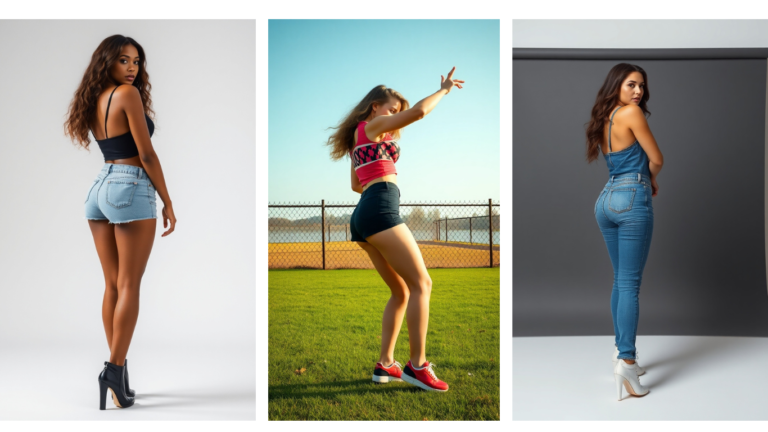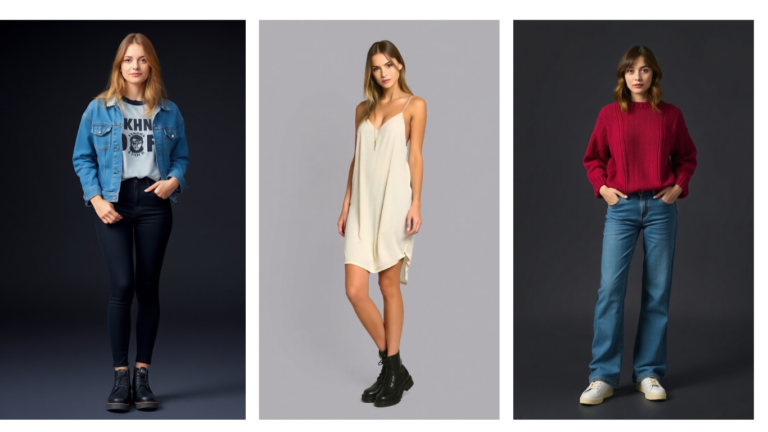Where To Wear Dirndl Beyond Oktoberfest?
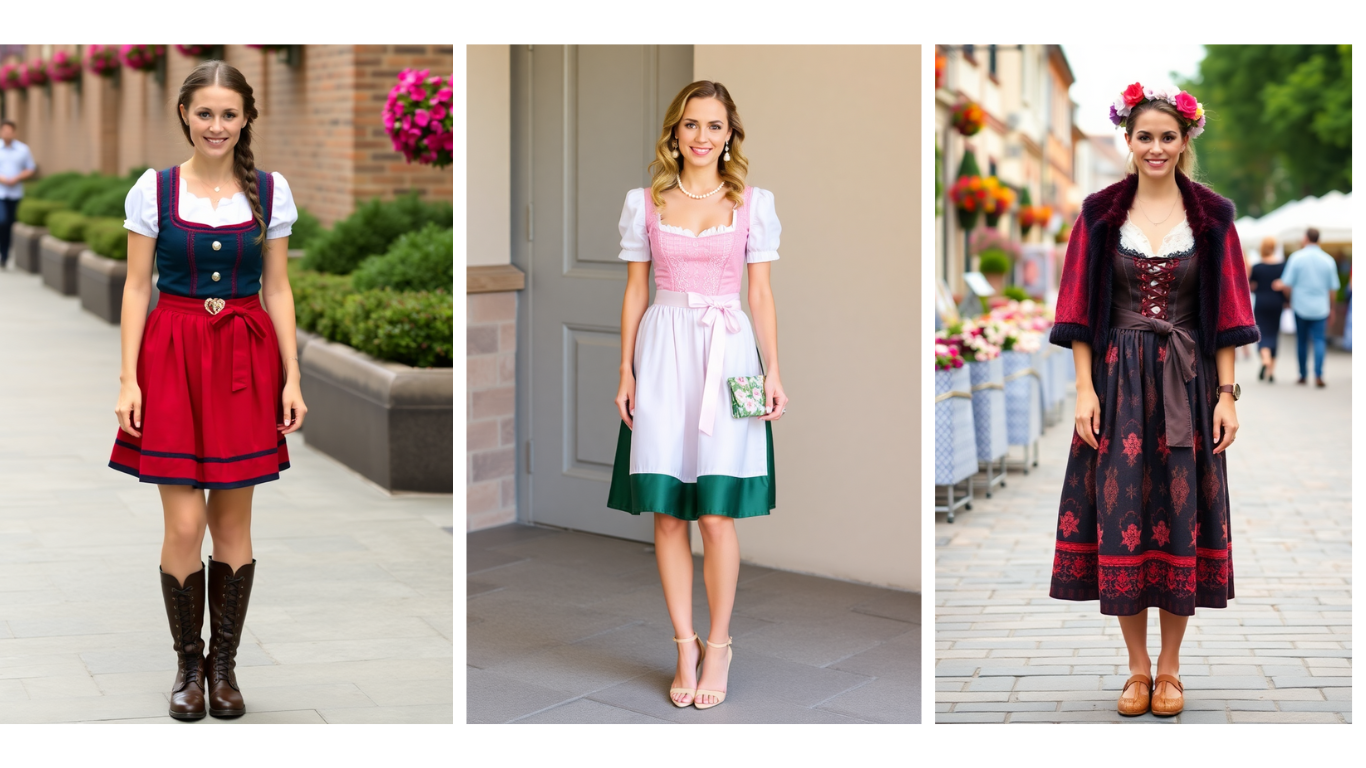
Last Updated on February 4, 2025 by Chang & Sophie
A dirndl is more of a traditional outfit that originates from the Alpine regions of Germany, Austria, and Switzerland.
With its fitted bodice, flowing skirt, and elegant apron, this dress has become a symbol of Bavarian culture.
A lot of people associate it with Oktoberfest, but dirndl has a life beyond the beer tents.
This attire can be worn at weddings, holiday gatherings, heritage festivals, just to mention a few.
Whether you’re embracing your heritage or just love the classic design, there are many opportunities to leverage a dirndl outside of Oktoberfest.
What is Dirndl?
A dirndl is a traditional German dress, often worn in Austria and parts of Switzerland. It consists of a bodice, a blouse, a full skirt, and an apron.
Typically, this dress is made from colorful fabrics like cotton, silk, or wool, and is often adorned with floral patterns.
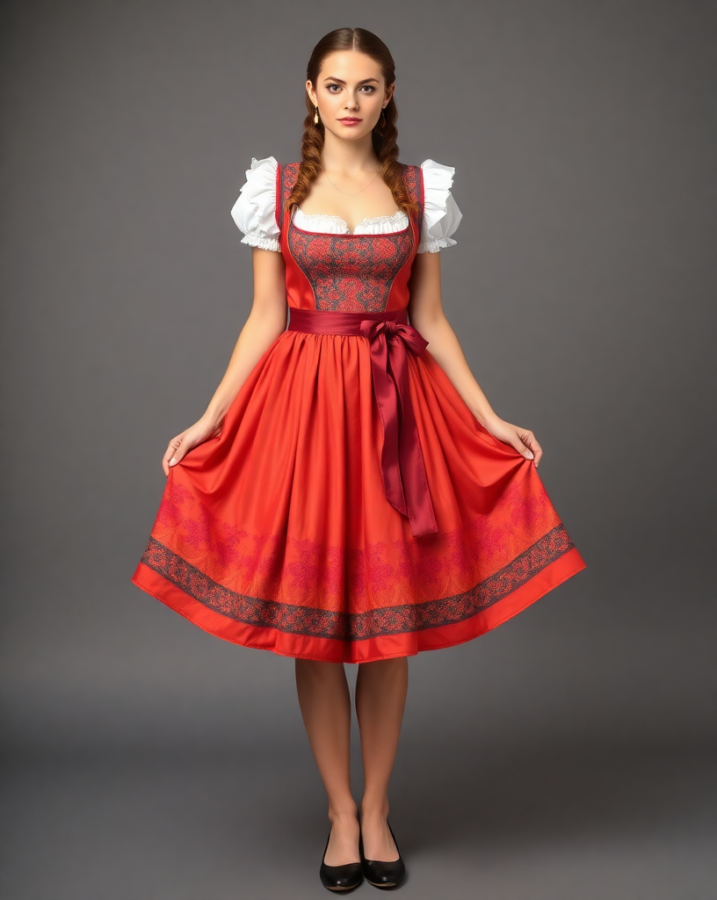
The dirndl is a symbol of regional heritage. In most cases, it’s worn during Oktoberfest and other cultural festivals.
The way the apron is tied can indicate different meanings, such as relationship status. Dirndls have become popular outside their traditional settings. To prove this, it’s seen as a fashionable yet cultural garment.
Occasions To Wear Dirndl Beyond Oktoberfest
1. Traditional German Festivals
Germany and Austria are known for their lively festivals that bring communities together with food, music, and dancing. Volksfest, Maifest, and Christkindlmarkt are just a few occasions where wearing a dirndl fits naturally.
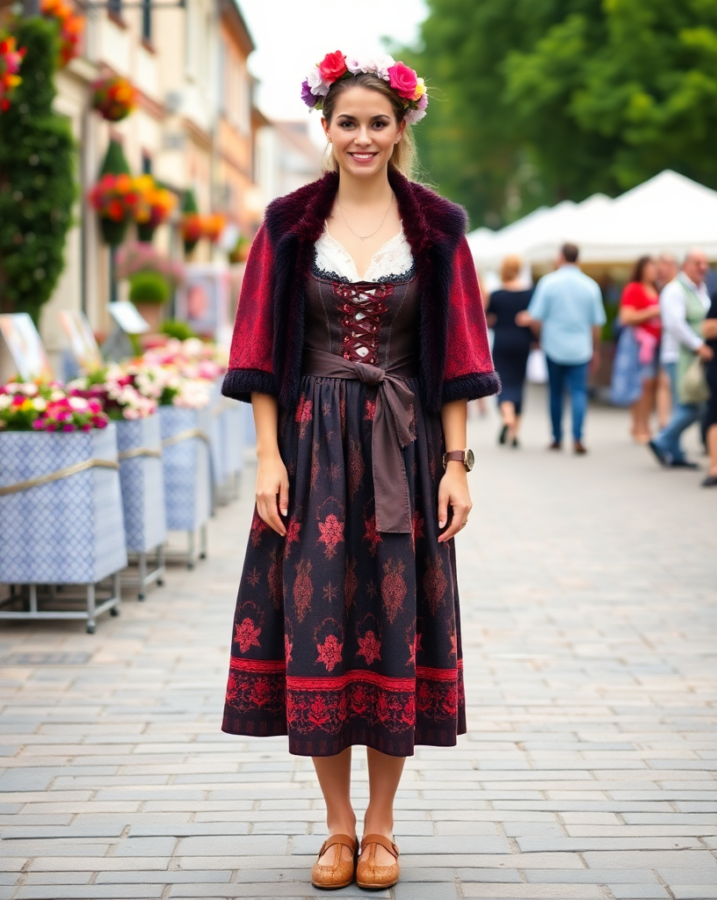
At Volksfest, a local fair featuring rides and beer gardens, attendees dress in traditional Bavarian clothing.
Maifest, a festival celebrating the arrival of spring, includes dances around the maypole, where dirndls in bright floral prints add to the cheerful atmosphere.
During Christkindlmarkt, a traditional Christmas market, women wear warm wool dirndls while sipping mulled wine and shopping for handmade gifts.
How to Style a Dirndl for Festivals:
For summer festivals, a lightweight cotton dirndl with floral patterns works best. Pair it with a lace-trimmed blouse and comfortable flats for all-day wear.
A flower crown adds a playful touch for spring celebrations like Maifest.
In winter markets, a wool or velvet dirndl layered with a cozy cardigan or a fur-trimmed cape keeps you warm while still looking elegant.
2. Dirndl in Wedding Ceremonies
Weddings are a chance to dress elegantly, and in some regions, dirndls are a cherished choice.
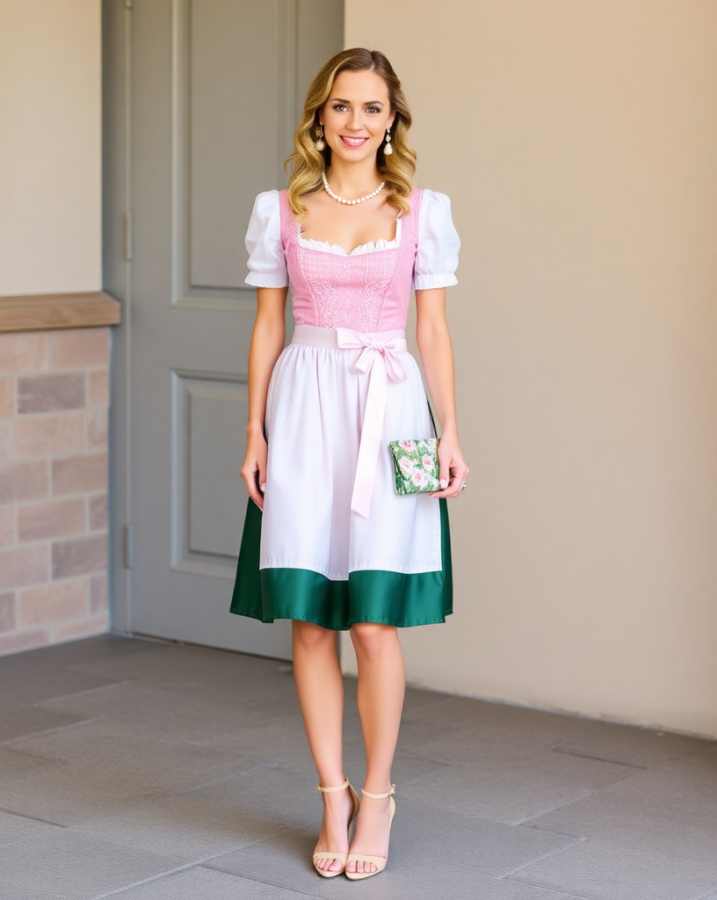
In Bavaria and Austria, Alpine-themed weddings are common, where guests, bridesmaids, and brides wear dirndls.
These dresses come in various designs, from simple cotton styles to luxurious silk and lace versions. A well-crafted dirndl can be just as graceful as a ball gown, especially in muted pastels.
Bridesmaids can wear coordinated dirndls to match the wedding theme, creating a charming, rustic aesthetic.
Even guests can embrace this fashion so that they can blend seamlessly into the event’s traditional ambiance.
Apart from weddings, dirndls are also suitable for other formal gatherings, such as baptisms or anniversary celebrations, where a refined yet cultural outfit is appreciated.
How to Style a Dirndl for Weddings
For a wedding, select a dirndl in soft, romantic shades like blush pink. Satin aprons add a touch of sophistication.
Style your hair in soft curls, and complete the look with pearl earrings and delicate heels. A small floral clutch adds a stylish touch.
3. Family Gatherings
Dirndls also bring a touch of tradition to intimate family gatherings. Whether it’s Christmas dinner, Easter brunch, or Thanksgiving lunch, wearing a dirndl adds a sense of heritage and nostalgia.
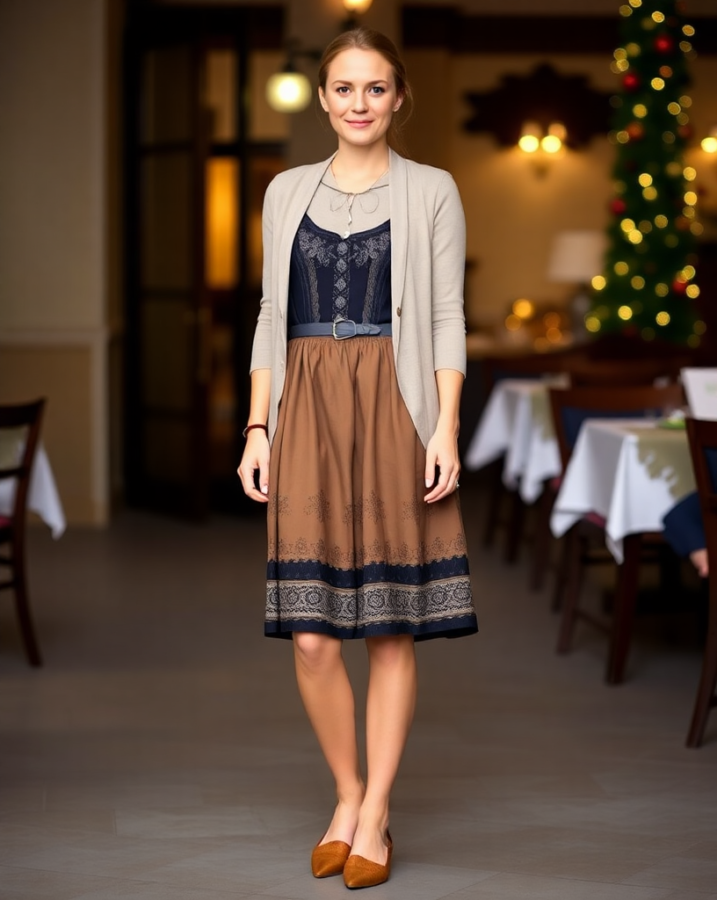
At Christmas, dirndls in deep red, green, or navy with velvet accents complement the festive mood. During Easter brunch, floral patterns match the springtime ambiance.
Thanksgiving offers a chance to wear earthy tones like mustard yellow to reflect the autumn season.
How to Style a Dirndl for Holiday Gatherings
For holiday dinners, get a midi-length dirndl with subtle embroidery. A soft cashmere cardigan or a fitted blazer can add warmth.
Pair the look with simple leather flats for a cozy feel. Light, natural makeup with a hint of rosy blush completes the look without feeling too formal.
4. Cultural Events
Many communities around the world hold German, Austrian, and Swiss heritage events. In such occasions, wearing traditional attire is encouraged.
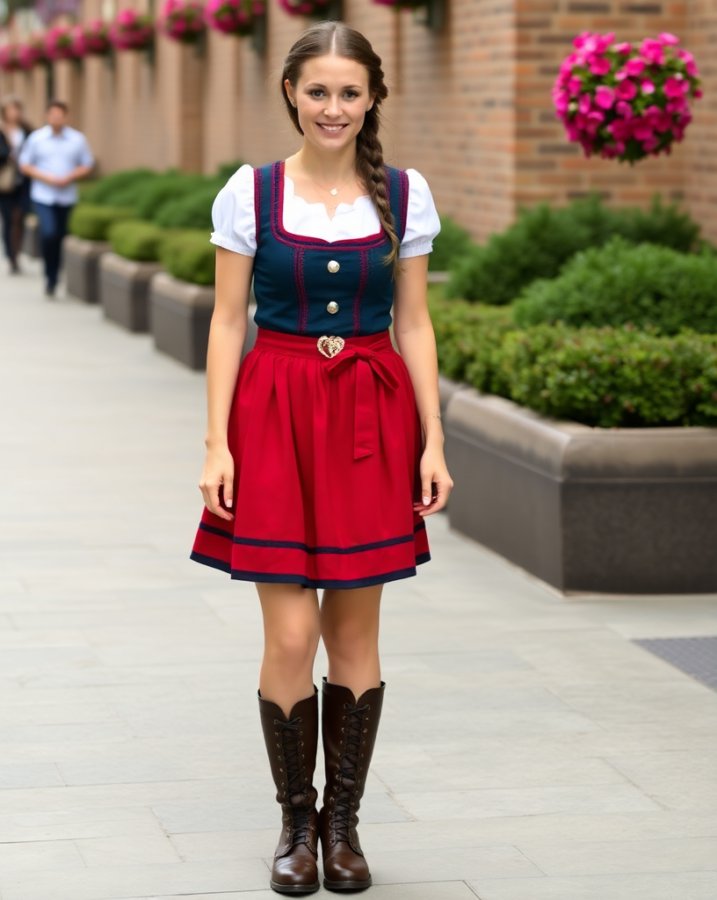
These events might include parades, folk dance performances, or cultural fairs showcasing food and music from the region.
At folk dance performances, dancers wear dirndls that allow easy movement, often with shorter skirts and sturdy shoes.
At parades or heritage fairs, attendees dress in traditional Bavarian outfits to honor their roots.
How to Style a Dirndl for Cultural Events
For a heritage event, a classic dirndl in deep blue, green, or red works well. A fitted bodice with traditional silver buttons adds authenticity.
Braided hairstyles, a statement belt, and lace-up boots give the outfit a timeless feel.
To make the look more authentic, accessorize with a heart-shaped charm necklace or a small leather handbag.
5. Themed Parties and Costume Events
Dirndls can also be worn for themed parties, including Oktoberfest-inspired gatherings, Renaissance fairs, and costume events.
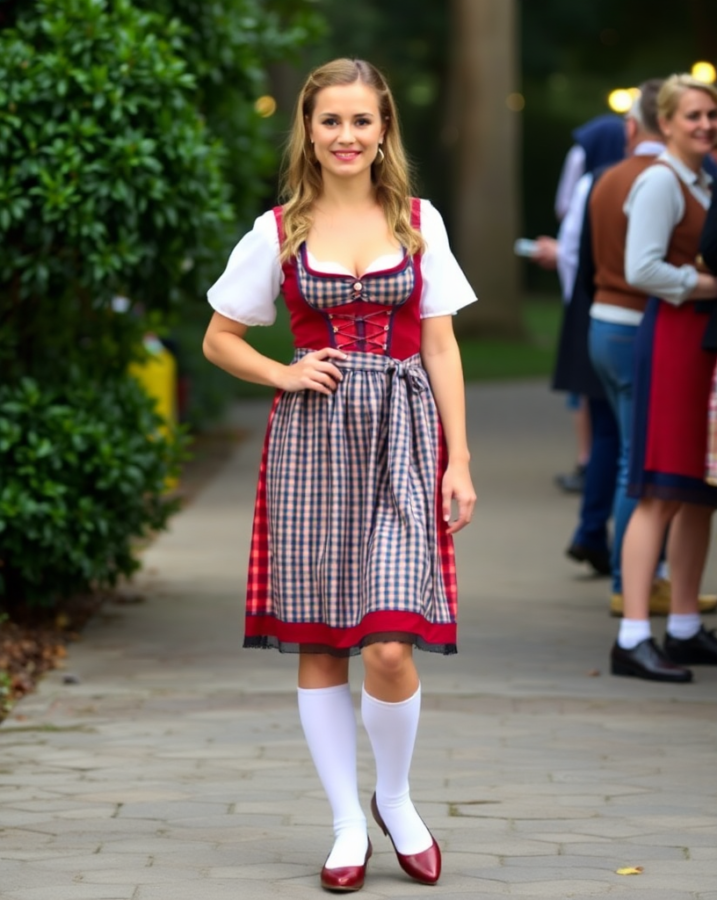
Many people host Oktoberfest parties at home, where guests dress in Bavarian-style outfits while enjoying pretzels and beer.
At Renaissance fairs, dirndl can be styled to fit a medieval theme. That’s to say, the outfit is unique alternative to traditional Renaissance dresses.
For Halloween, a dirndl can be transformed into a fairytale-inspired costume, such as Little Red Riding Hood.
How to Style a Dirndl for Themed Events:
For an Oktoberfest party, a bright, playful dirndl with a checkered apron and classic knee-high socks creates an authentic look.
Choose an earth-toned dirndl with a corset-style bodice and a flowy blouse with bell sleeves. If using a dirndl for Halloween, enhance it with themed accessories such as basket for a Red Riding Hood look.
6. Modern Streetwear and Fashion Statements
In recent years, dirndls have made their way into contemporary fashion. Some designers create modern versions with sleeker silhouettes, edgier fabrics, and unexpected details like leather bodices.
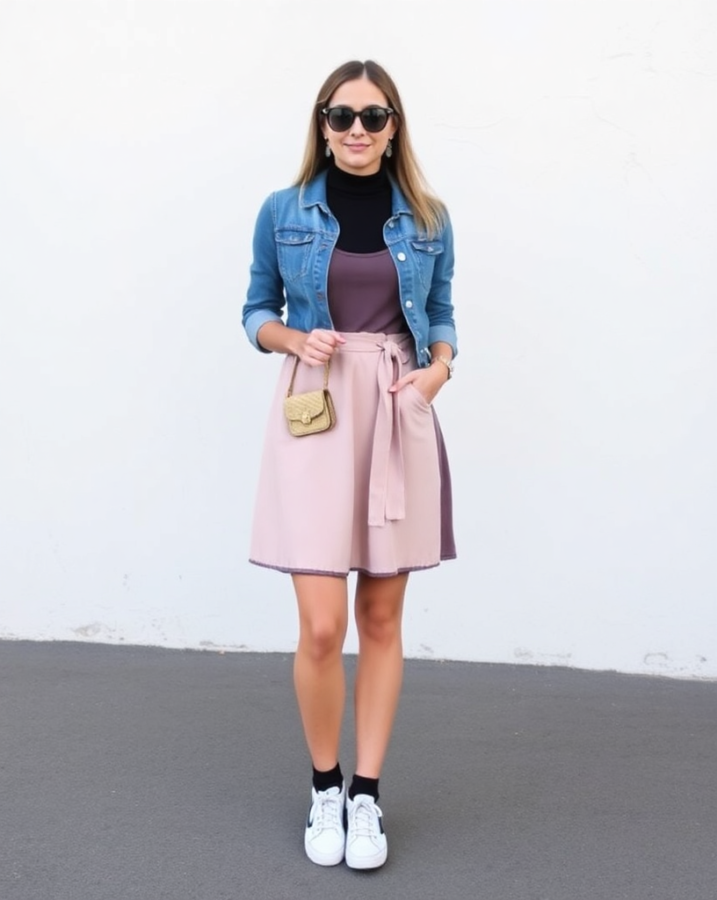
Fashion influencers mix dirndl skirts with casual blouses, turning them into chic everyday wear.
Some wear dirndl-inspired corsets over modern dresses, blending tradition with trendy elements. This fusion of old and new makes dirndls an exciting choice for fashion-forward individuals.
How to Style a Dirndl for Streetwear:
For a casual look, pair a dirndl skirt with a fitted turtleneck or a cropped denim jacket. Instead of traditional blouses, pick a modern tank top or off-the-shoulder blouse to give the look a contemporary feel.
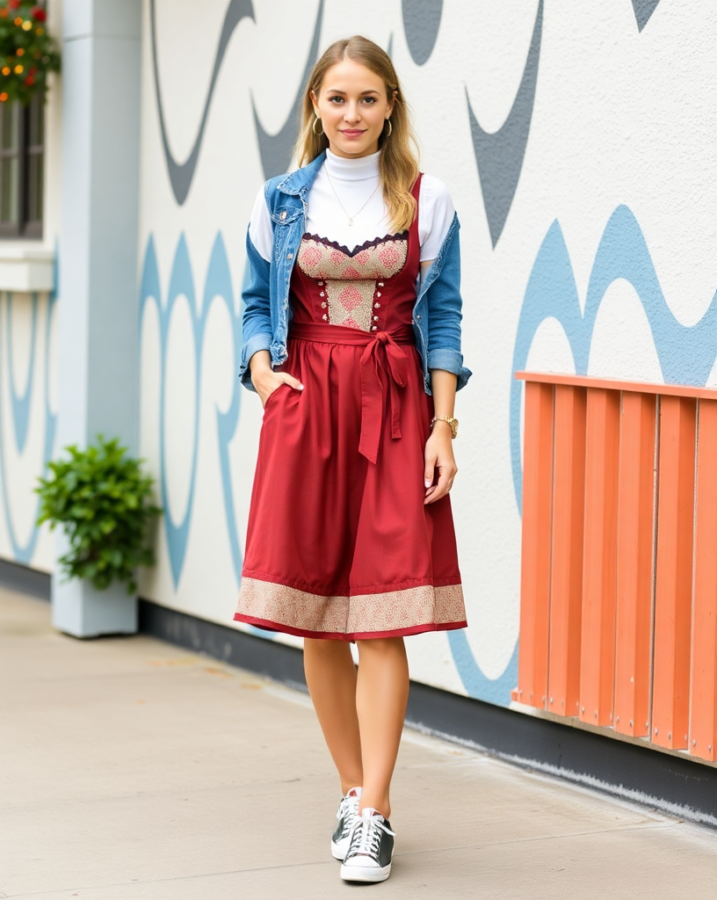
Sneakers or ankle boots add a relaxed vibe, while minimalist jewelry keeps it stylish without looking overly traditional.
To Sum Things Up
Though many associate dirndls with Oktoberfest, they are much more versatile than people realize.
From weddings and heritage festivals to themed parties, thisa traditional dress continues to evolve while maintaining its cultural significance.

